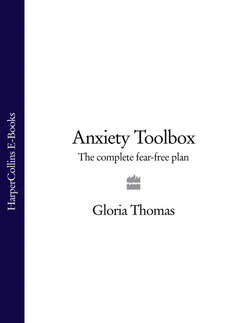Читать книгу Anxiety Toolbox: The Complete Fear-Free Plan - Gloria Thomas - Страница 33
Obsessive Compulsive Disorder
ОглавлениеIf you experience ongoing anxious thoughts that cause you to repeatedly engage in time-consuming rituals, then you may be suffering from Obsessive Compulsive Disorder or OCD. According to the mental health charity Mind, 1.2 per cent of the UK population have an obsessive-compulsive disorder at any one time. Other research suggests that somewhere in the region of 3 per cent of the population have experienced OCD. In the US, it is estimated that 3.3 million suffer from this intrusive disorder. It strikes both men and women equally and often has its roots in childhood. One third of adults with OCD say that their obsessions began when they were children.
A key feature of OCD is the repeated compulsive behaviour that occurs as a result of dwelling on a perceived threat. Confronted with a particular threat, the OCD sufferer will become anxious and unable to disengage from the object of concern. Fear becomes too much to bear and this then leads to compulsive behaviour. This behaviour reduces the severity of the anxiety or the obsession. However, the relief is only minor and so a vicious circle of more anxiety, worry and obsession can occur, resulting in the need to do the compulsive behaviour repeatedly.
Common obsessions are with dirt and feeling contaminated or the fear that some sort of disaster will occur because you have failed to do something – for instance, turn the lights off or lock the doors. Rituals involve things like washing hands, showering, cleaning, checking light switches and turning off taps. With severe cases of OCD, people have been known to wear their skin away or spend hours turning on and off light switches.
Again, like other anxiety disorders, there are degrees of OCD. It can be mild or it can completely disrupt daily life, as hours each day are spent going through the same ritual repeatedly. Even though sufferers realize their behaviour is bizarre and a product of their own mind, they often cannot stop themselves. With milder cases, the symptoms can improve over time without outside intervention but often those with a more serious condition will find it grows worse and completely takes over their life. In an attempt to calm the situation down, some sufferers will resort to using alcohol or drugs – however, this just creates a whole new set of problems. OCD can also lead to other disordered behaviours, such as obsessions with food, which can lead to eating disorders, other anxiety disorders and depression.
